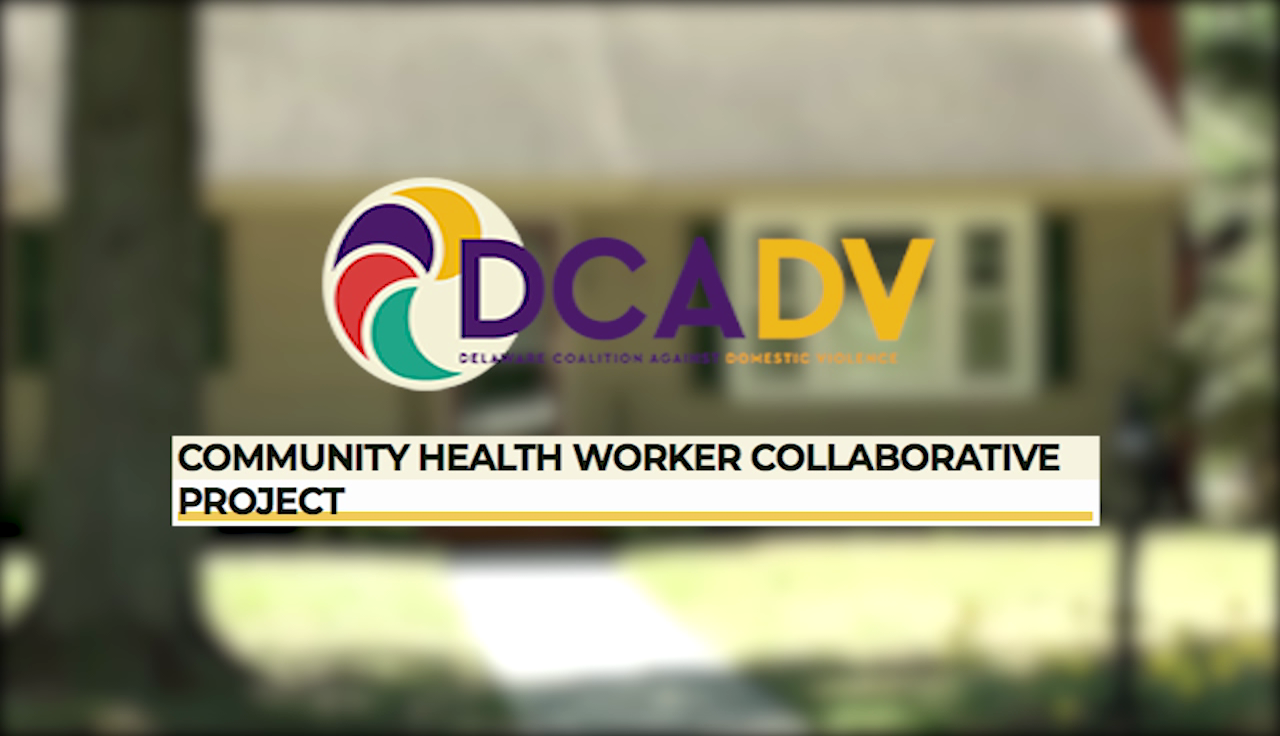Community health workers to help victims of domestic violence in Kent and Sussex counties
DELAWARE — Victims of domestic violence in Kent and Sussex counties have more help along the way. On Tuesday, the Delaware Coalition Against Domestic Violence (DCADV) announced the expansion of its Domestic Violence Community health worker project.
Expand the project
“For very many victims of domestic violence, the first responder is not the police. He’s their medical care provider. Their doctor or a nurse hears about the abuse, and they can tell from the patient’s condition that there is something dangerous in the home,” said DCADV executive director Sue Ryan. “The Domestic Violence Community Health Worker Project connects medical providers with community health workers, who can then provide security in the home. »
The expansion is made possible through association with Medicaid and Amerihealth Caritas, and a donation from the Longwood Foundation. “This innovative new funding model really lays the foundation for sustainability,” Ryan said.
Two community health workers (CHWs), certified by the Delaware Division of Public Health (DPH), ChristianaCare, or Delaware Technical Community College will work with victims.
“CHWs are often recognized in their communities as intermediaries. We also recognize them as public health professionals. They are an extension of what we do,” said Lisa Henry of DPH. “Community Health Workers help us achieve our mission to protect and promote the health of all Delawarens, and our vision of healthy people in healthy communities.”
Increase resources
Ryan says these CHWs will provide a variety of different types of victim assistance.
“Community Domestic Violence Health Workers are mobile, trauma-informed domestic violence advocates who meet with victims of domestic violence in the community in safe locations and then address health and safety,” said said Ryan. “The bottom line is that community health workers have an impact because of their access to services and connections to those services.”
The program has worked well in New Castle County for several years. Blanche Creech, associate director of domestic violence and community services at People’s Place, says having the two CHWs on the ground in lower Delaware will make all the difference for victims.
“We receive applications from victims of domestic violence every night, every day. The needs are truly overwhelming,” Creech said. “There are many opportunities with health providers who can screen and connect victims to domestic violence services.”
Advocates hope this expansion will particularly help those living in underserved communities. “The majority of people who are served are black and Hispanic women with children, and the majority reside in high-risk areas for healthy women and healthy babies,” Ryan said.
Mental health and physical health
While providing services to victims is an important aspect of the project, advocates say it can also improve overall health outcomes. This has been proven by the program’s continued success, says Maite Aros of Child Inc. and the CHW Association of Delaware Coordinating Council.
“[Victims] shared that they had chronic pain, they had diabetes, they had high blood pressure, they had high cholesterol, they had stress, they had depression, they had anxiety,” Aros said. “A lot of them were complaining about it, but they weren’t having access to services, either because they didn’t have transport, they were isolated, they didn’t have health insurance .”
In fact, data from DCADV shows that victims who worked with CHWs were less likely to have 25 days or more of poor physical and mental health in the past 30 days. “All who were served reported improved quality of life and fewer days of poor health,” Ryan said.
Beyond improving physical health, Creech says knowing that support exists can also improve the quality of life for victims. “This relationship that develops is based on trust that is built over time. The relationship can last a long time,” she said. “Survivors who go through supportive advocacy from community health workers have increased hope for the future. If we can’t inspire some sense of hope in the people we work with, that’s a real problem.
A long time to come
While the expansion is just getting started, supporters say the mission has been a long time coming. Between its founding in 1939 and 1969, the Journal of Marriage and Family did not list violence in the titles of its articles.
“Even after the curtain began to be drawn on the scale of the social problem, it still required tremendous effort from activists, advocates, victims, survivors and domestic violence agencies. …to really address domestic violence, as well as acts of crime,” said Rita Landgraf of the Partnership for Healthy Communities at the University of Delaware.
It was not until 1994 that the law on violence against women was passed. “It really helped build that criminal justice system response and provides important services for victims of domestic violence that are still essential today,” Landgraf said.
However, Landgraf says there was still more work to do. In 2002, the World Health Organization published the first-ever comprehensive global study on domestic violence. And, Landgraf says the work just keeps going.
“Think about it. That was just 20 years ago,” Landgraf said. to help Delaware and the nation better understand domestic violence as a public health issue.”
bright future
Delaware Lieutenant Governor Bethany Hall-Long says she’s proud of the first state to expand resources for victims of domestic violence. However, it will take a village to make it even more successful.
“There is nothing more important than using the model of community health with domestic violence to show these real results not only on health and the economy, but in our community,” said Lt. Governor Hall-Long. “We have a new model. But it will not succeed without each of us looking into it.


Comments are closed.